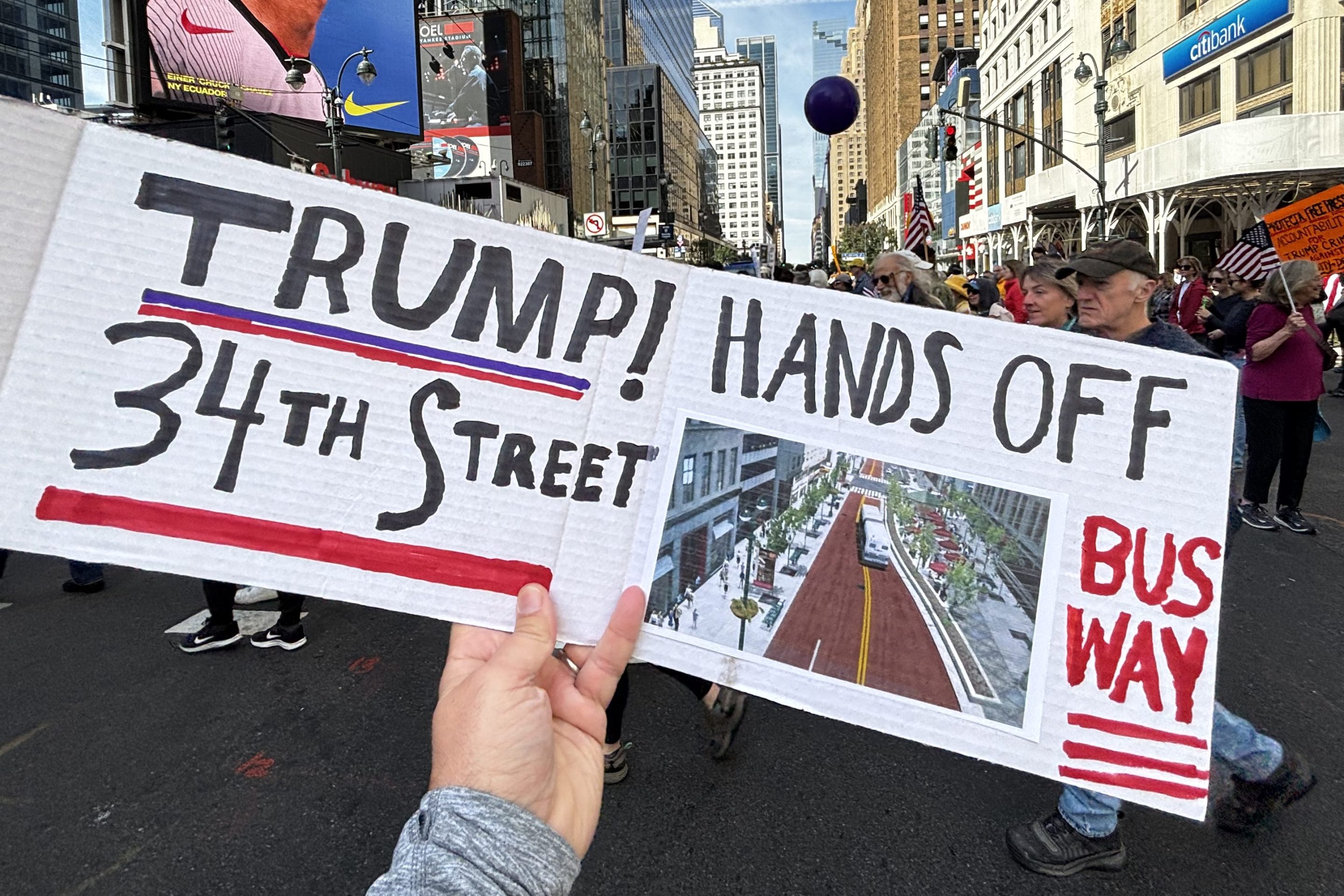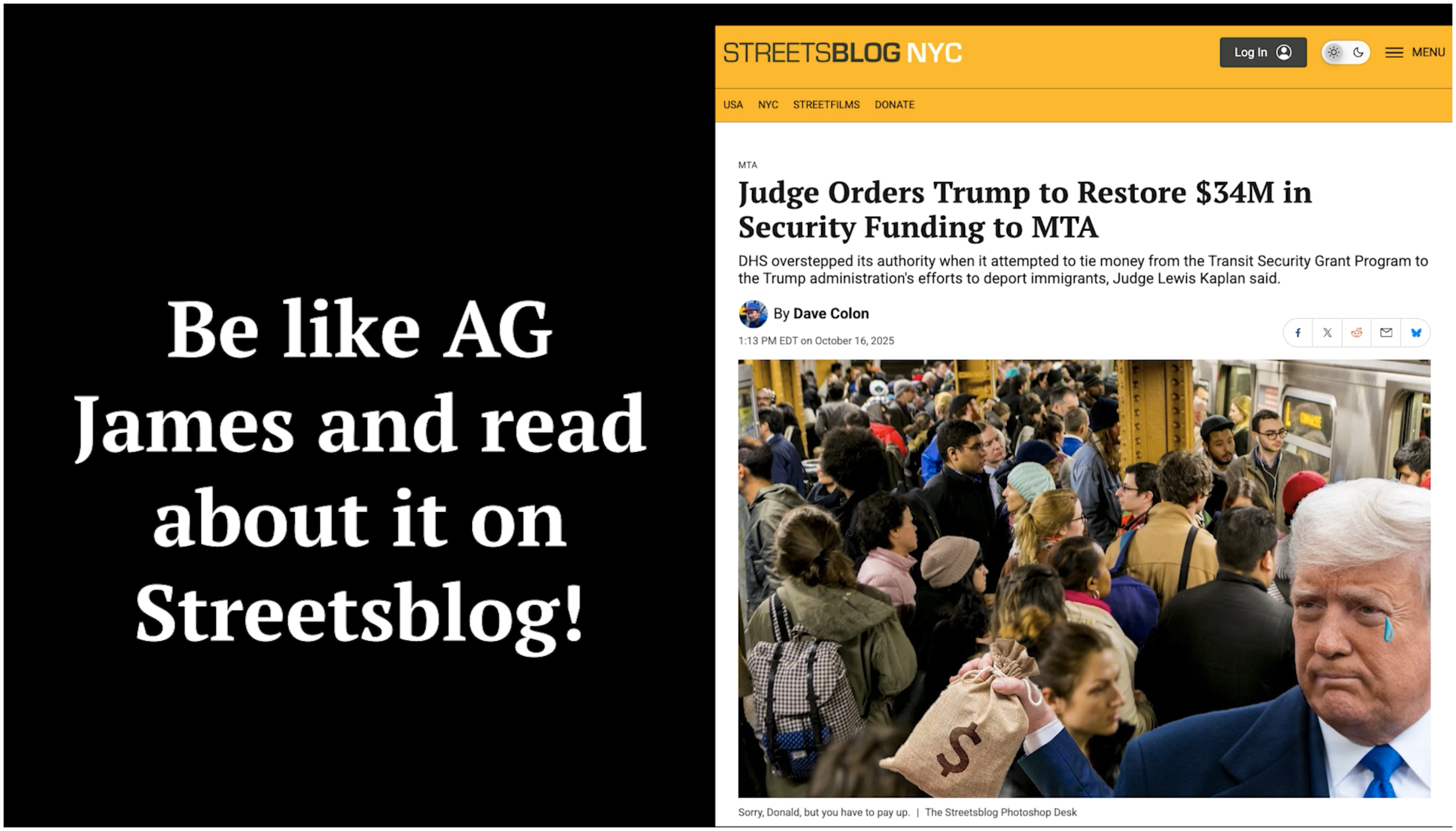Andrew Cuomo has been governor for all of three days, but even his small first actions could have big implications. With the state's massive deficit looming, Cuomo won't be able to avoid tough choices and big fights, and transportation is very much in the crosshairs. Bigger news could come as early as Wednesday, when Cuomo announces his emergency financial plan -- in which he could announce raids on the MTA's dedicated finances in the hundreds of millions -- but already a picture of this year's agenda is beginning to emerge.

To begin with, Cuomo is drawing a line in the sand over public sector compensation. Yesterday, a top administration official revealed that Cuomo will ask the state's unions to accept a salary freeze for all state employees. And today, Cuomo announced that he and senior aides would take a five percent cut.
As Ben Kabak notes in a post today, New York City's transit workers can't help but get drawn into this battle. TWU Local 100's contract with the MTA expires next January, meaning negotiations will start in 2011. Whether because the state budget is intertwined with the MTA's or because one public contract sets standards for another, Cuomo's stance will affect those talks. Concludes Kabak:
For better or worse, labor pressures will be one of the top transit storylines for 2011. If workers’ salaries and benefits keep going up, riders will be outraged. If the unions are battered or broken by Albany, the workers will be very unhappy. No matter what, this story will be have a bumpy ride and an ending that can’t be happy for everyone.
Cuomo has also started to make some top appointments, and the Times-Union's Rick Karlin teases out what one of them might mean: privatization. He writes:
They may not call it that, but watch for deals in which infrastructure, buildings or even bridges and roads are "sold" and then leased back to the state, or operated by concessionaires. It will be controversial, but could raise lots of cash in a hurry. Cuomo has hired Paul Francis, who under Spitzer helped develop a plan -- which wasn't enacted -- to securitize or sell future lottery proceeds to investors for a large chunk of cash to help create a fund for higher education.
During the campaign, Cuomo's policy books didn't say much about this specific type of privatization, but they did reveal a strong interest in using public-private partnerships to finance infrastructure. However, not all experiences with monetizing transportation assets have been a success -- Chicago's lease of its parking meters is widely considered a disaster for the city -- and private sector money never comes without a price tag.
In this cost-conscious environment, the Tri-State Transportation Campaign has some other advice for the governor. On transit funding, Tri-State's Kate Slevin and Veronica Vanterpool suggest a congestion pricing plan for New York City in order to finance the MTA's capital program, which still has a $9 billion gap. Cuomo could make the state DOT more efficient and more sustainable by streamlining the agency's eleven regional offices and investing in more cost-effective smart growth solutions, they write.
Perhaps more controversially, Tri-State also suggests scrapping plans for commuter rail across the Tappan Zee Bridge in order to free up funds for other important projects. Write Slevin and Vanterpool:
On the capital side, the next Governor should also support the LIRR third track project (key for Long Islanders to reap the benefits of East Side Access) and plans for bus rapid transit in the Tappan Zee Bridge/I-287 corridor. Additionally, plans for Tappan Zee Bridge replacement could be scaled down and proceed without the commuter rail connection from Rockland to NYC. Most commuters using the Tappan Zee are traveling to suburban destinations, not ending their trips in Manhattan, so the bus rapid transit connection, which provides much greater utility at the most affordable cost, should be retained.
The Cuomo Administration is young, but one thing's already clear. For the foreseeable future, it's all about making ends meet.





